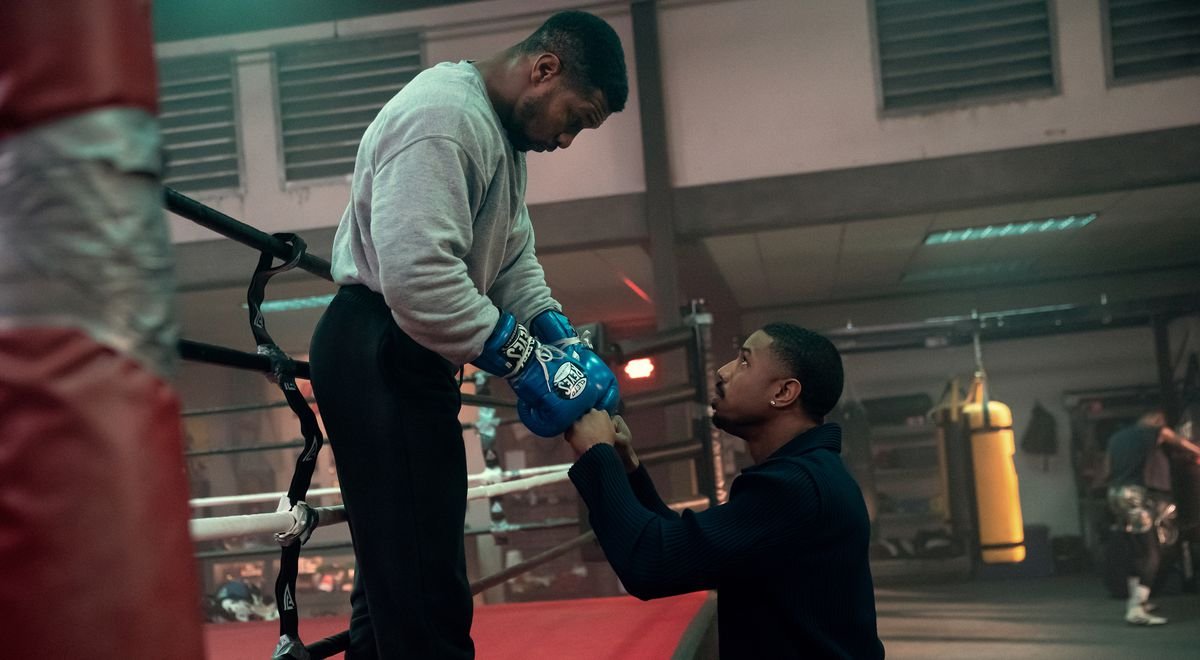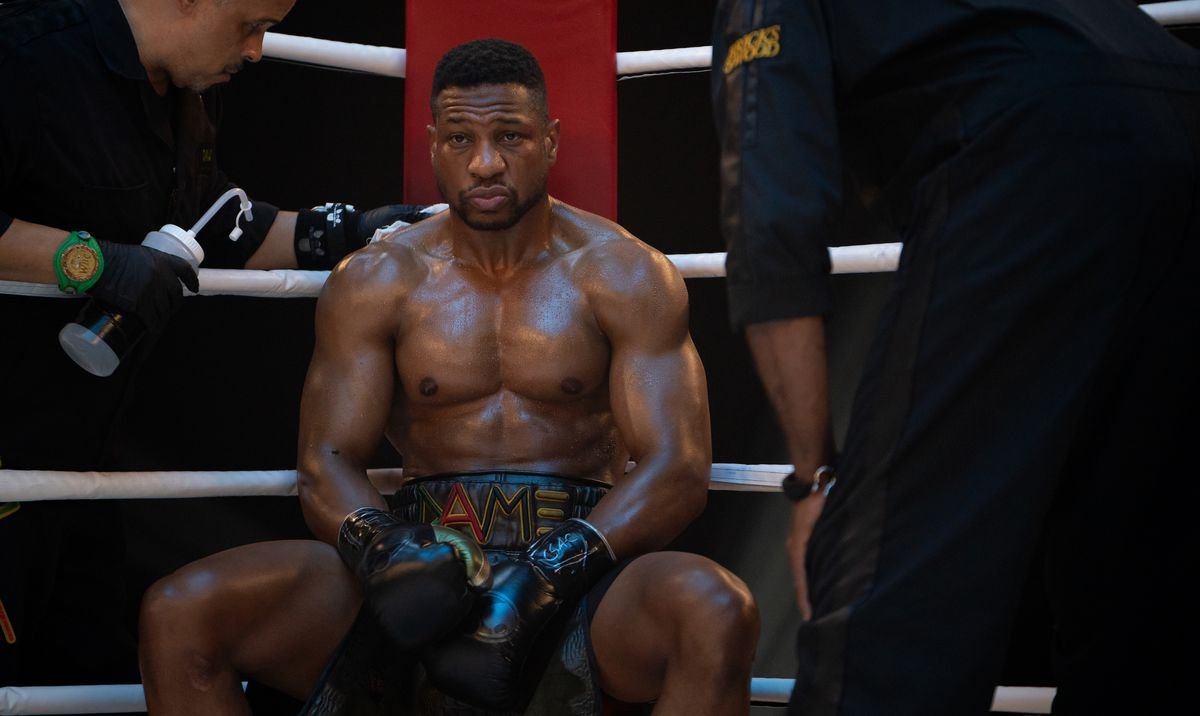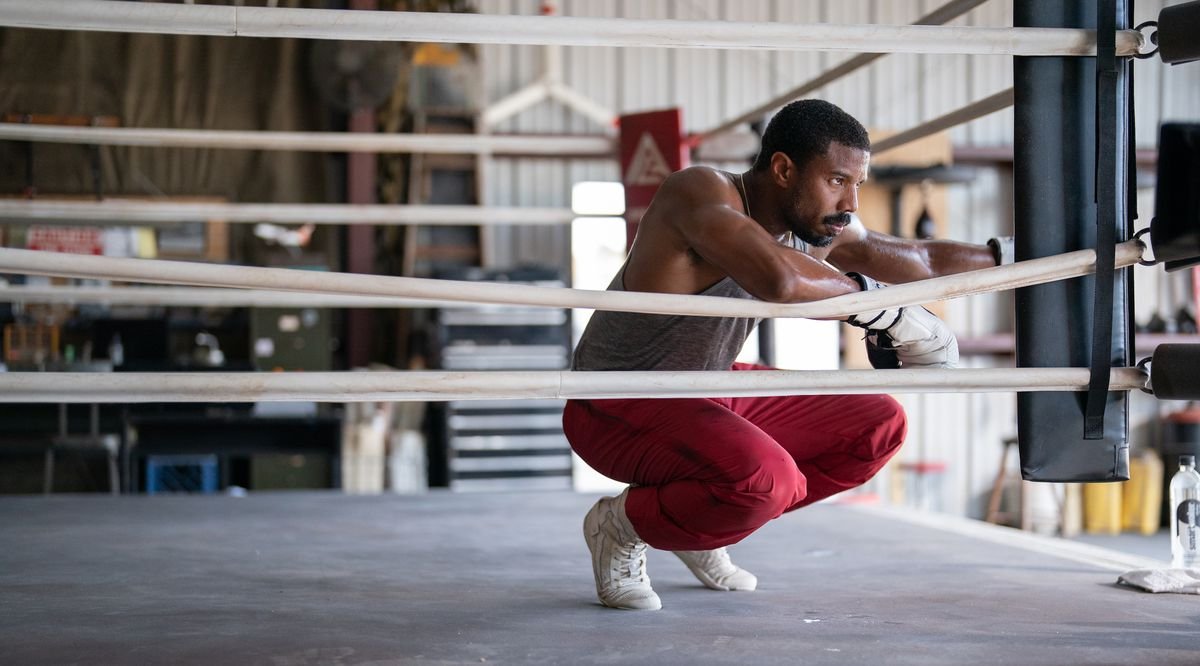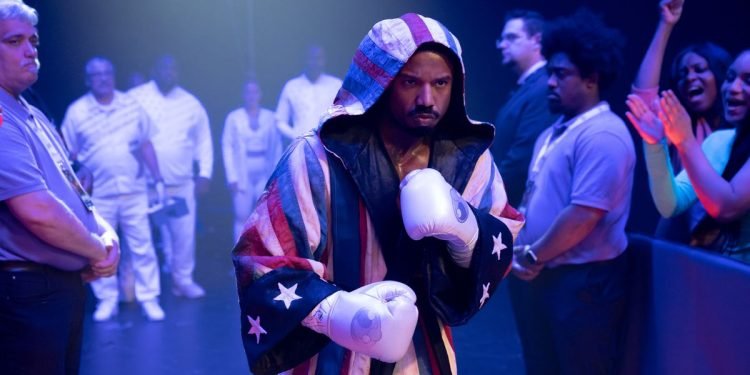Creed III faces the unique challenge of bringing the Rocky series out of Sylvester Stallone’s shadow. The ninth installment of the franchise that started with 1976’s Rocky is the first to feature Stallone neither on screen nor in a creative capacity. This time, the directorial reins have been handed to Michael B. Jordan, who plays Rocky’s protege Adonis in the Creed movies. In his directorial debut, Jordan, a self-professed anime and manga fan, imbues the spinoff/threequel with a cinematic zest the series has never seen before, expanding the visual language of the Hollywood boxing movie in remarkable ways.
While Jordan’s approach sometimes works against the saga’s previously grounded nature, Creed III has enough visual panache to plaster over its occasional narrative inelegance. But its strongest suit is its creators’ desire to weave a character-centric tale that doesn’t repeat the beats of the Rocky movies, the way Creed and Creed II follow the broad structure of Rocky and Rocky IV. At the same time, the new film doesn’t mimic the emotional arcs of previous Creed installments, either. Scripted by Keenan Coogler and Zach Baylin (from a story they co-wrote with Ryan Coogler, Keenan’s brother and director of Creed and the Black Panther movies), it continues the trilogy’s running theme of people confronting the past, but it’s the first Creed movie where the emotional weight doesn’t stem from the original Rocky films.
Creed is about Adonis dealing with the legacy of his father, boxer Apollo Creed (Carl Weathers), and Creed II sees him facing Viktor Drago (Florian Munteanu), the son of Rocky IV villain Ivan Drago (Dolph Lundgren). Creed III draws on Adonis’ history as a child rescued from the foster care and juvenile detention systems by a family of means. (Apollo dies in Rocky IV; Phylicia Rashad plays his widow, Mary-Anne, in all three Creed films.) The story confronts Adonis with his privilege as a Black man whose family name offered him both instant celebrity and instant escape from cycles of violence and poverty. This specter takes the form of Adonis’ old, forgotten friend, Damian “Dame” Anderson (current Marvel Cinematic Universe star Jonathan Majors), who has been released from prison after nearly 20 years. When he seeks out Adonis’ help to enter the boxing world, the former champion reluctantly agrees.

Photo: Eli Ade/Metro-Goldwyn-Mayer Pictures
After a prologue hinting at Adonis’ fraught history with Damian, the movie ropes in familiar faces from earlier in the series to tie up loose ends. Three years into Adonis’ retirement, he and his former trainer, Tony “Little Duke” Evers (Wood Harris), now mold the next generation of boxing greats at their gym, drawing from their fathers’ long history together. Adonis lives in an enormous mansion, where his wife, Bianca (Tessa Thompson), produces music in her private studio, and similarly nurtures up-and-comers rather than performing onstage herself, though her career choices weren’t entirely in her control. (Bianca’s hearing loss, established in Creed and the sequel, has worsened.)
Their young daughter, Amara (Mila Davis-Kent), is a joyful firecracker. (Davis-Kent is deaf, and so is her character — a significant amount of the film’s dialogue is in American Sign Language.) They all share a happy existence on the surface, but Adonis historically hasn’t been the type to open up with his emotions, and Creed III takes full and brutal advantage of that limitation.
The cracks in his family life widen once Damian enters the picture, bringing long-buried memories of the violence they faced as children, and a sense of guilt that bubbles just beneath the surface of their polite interactions. Adonis made it out, after all, while Damian ended up behind bars for something that may have been Adonis’ fault. Both men refuse to directly or honestly confront this resentment — Adonis doesn’t have the emotional wherewithal, while Damian uses friendship to conceal ulterior motives. Their get-togethers brim with riveting emotional tension, as the possibility of sudden conflict permeates every conversation.
We’re barely two months into 2023, and it’s already Majors’ year, between his imposing regality as the villain in Ant-Man and the Wasp: Quantumania, his deep insecurity as an obsessive bodybuilder in the Sundance film Magazine Dreams, and his explosive turn in Creed III. As Adonis’ new antagonist, his quiet scheming — leading to an inevitable Top 10 Anime Betrayal — bears the operatic hallmarks of a mustache-twirling baddie, and his frequent in-ring outbursts when training with Adonis’ proteges are born from a simmering rage. And yet he creates one of the Rocky series’ most compelling and nuanced characters through the way he carries himself, with his “don’t fuck with me” physique and his shoulders hunched from decades of isolation. His eyes are weary, but his gaze is unwavering, seldom straying from his path up the ladder of the boxing world, where he sees Adonis at the top.

Photo: Eli Ade/Metro-Goldwyn-Mayer Pictures
Jordan, meanwhile, trains his lens on Adonis’ emotional vulnerabilities, which the character is desperate to conceal. Whenever Adonis is compelled to open up, he retreats further into emotional isolation. For most of the movie’s 116-minute run time, that’s the ring he’s fighting in. Unable to use physical combat as an outlet, he builds up anger that eventually boils over in unhealthy ways — most frequently in Bianca’s direction, though she manages to hold her own.
But what’s especially moving and challenging about Creed III is the way Adonis’ festering rage colors even his most seemingly gentle and caring moments as Amara’s father. The Creed series began with the question of what Adonis inherited from his father — and what these films inherited from the Rocky franchise. But three movies in, the focus has pivoted to what Adonis himself will pass down, and what the Creed movies stand for outside of Rocky’s shadow. The story is about violence as a language that stifles honest expression and reconciliation, and as a character trait that Adonis has to be careful about when training his daughter in self-defense.
Jordan’s performance isn’t just in conversation with Majors’ — he’s engaging with his own performance from earlier in the Creed series. Both their characters are defined by their pasts, and the loneliness they grew up with. Adonis repeatedly retreats into his shell in Creed and Creed II, but in Creed III, Jordan eventually forces him to push past his withholding instincts, even if that means making a mess in front of his loved ones. Unfortunately, there are several lost opportunities for dramatically charged scenes between Adonis and Mary-Anne, whose subplot is meaningful on paper, but in execution, whizzes by far too quickly and mechanically to leave a lasting impact.
As a grounded drama, Creed III struggles to overcome its inherent contradictions: It’s a film about leaving violence behind, but its third act — featuring the inevitable boxing match between Damian and Adonis — is framed as an extension of that idea, instead of in opposition to it. One key line of dialogue even seems to switch a character’s entire ethos from general anti-violence to pro Adonis-on-Damian violence specifically.
But while that sticks out strangely at first, it’s part and parcel of a film that not only frames fighting as its characters’ default lingua franca, but does so in the specific mode of a shonen manga or anime, where the action premise is so entwined with the character drama that they’re practically inseparable. (Another recent Hollywood production with this approach is the Netflix series Cobra Kai, where all personal and interpersonal conflict is resolved via karate.) That paradox becomes a necessary stylistic departure for the film, as Jordan flexes his directorial muscles during in-ring fights.

Photo: Ser Baffo/Metro-Goldwyn-Mayer Pictures
Moments in the film’s early going offer hints of the approach, which eventually blossom by the third act. Jordan and cinematographer Kramer Morgenthau isolate fighters’ body parts to emphasize the confrontation. (There are plenty of anime-style close-ups of glowering eyes.) They warp the fabric of action scenes around the characters, shaking the frame and blurring the focus during intense movement in order to mimic the action lines of stylized anime fights.
This naked inspiration is a far cry from the realism of most Rocky fight scenes. But Jordan leans all the way into it, folding his seemingly unstable narrative approach — the violence of the ring as an arena for catharsis that might end violence — into dreamlike vistas that foreground the characters’ suppressed conflict with jaw-dropping formalist flair. There are narrative road bumps involved in trying to reconcile the franchise’s American sports-drama roots with sports-anime inspirations, but the emotions hold it all together.
Jordan taking over for Stallone as director feels like a real-life Rocky trajectory for the series, but at the same time, Jordan works to sever Creed III from the Rocky franchise. Rocky Balboa only warrants a quick mention here, but mostly, this movie’s tale of fame and money, of dealing with retirement, of bottled-up emotions, and of confronting open wounds is all completely distinct from the way Rocky’s sequels approached similar stories. Creed III instead roots these themes in the specifics of Black Americans and their experiences within unforgiving systems. It explores the conflicted perspectives on Black wealth and celebrity as marks of individual success and as acts of assimilation, even betrayal of the Black community.
Over the course of the original series, Rocky’s biggest villain was the passage of time, and the unpredictable shape of his future. Adonis’ villain has always been the past, and the ways it continues to shackle him in the present. The way Jordan addresses these points in Creed III makes it as definitive a chapter as the character’s blistering first appearance. If Jordan continues working behind the camera, another pit stop or two with these characters and their story would be more than welcome.
Creed III debuts in theaters on March 3.















































